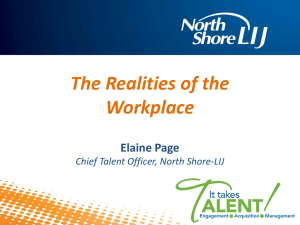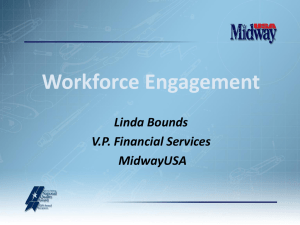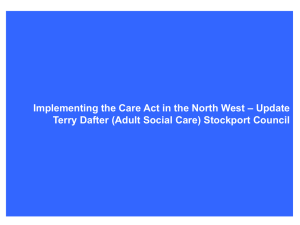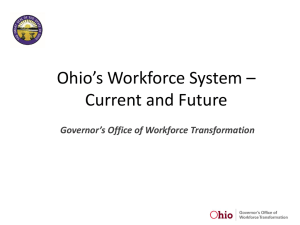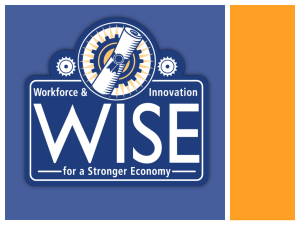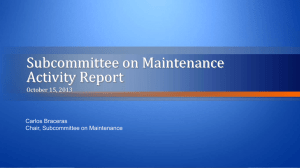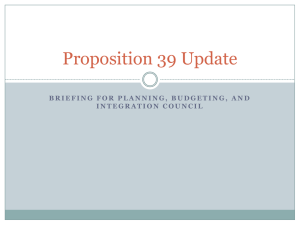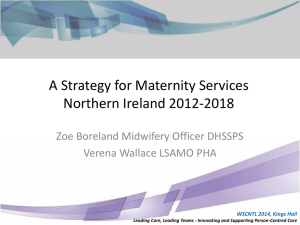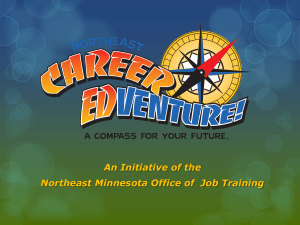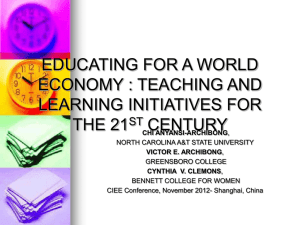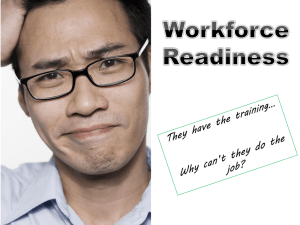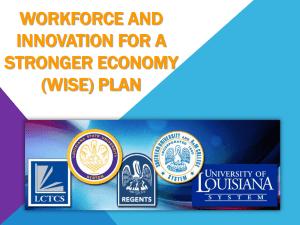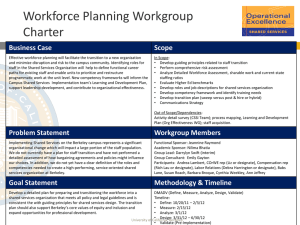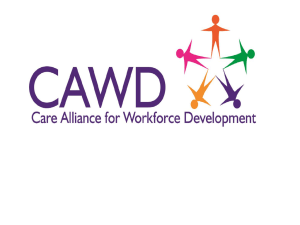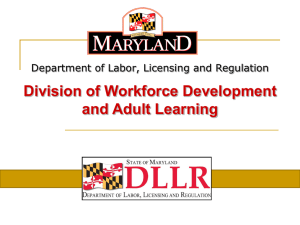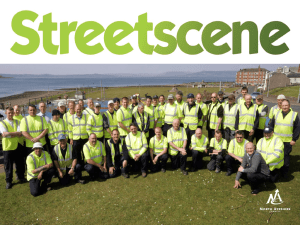Transportation Workforce Development - AASHTO
advertisement
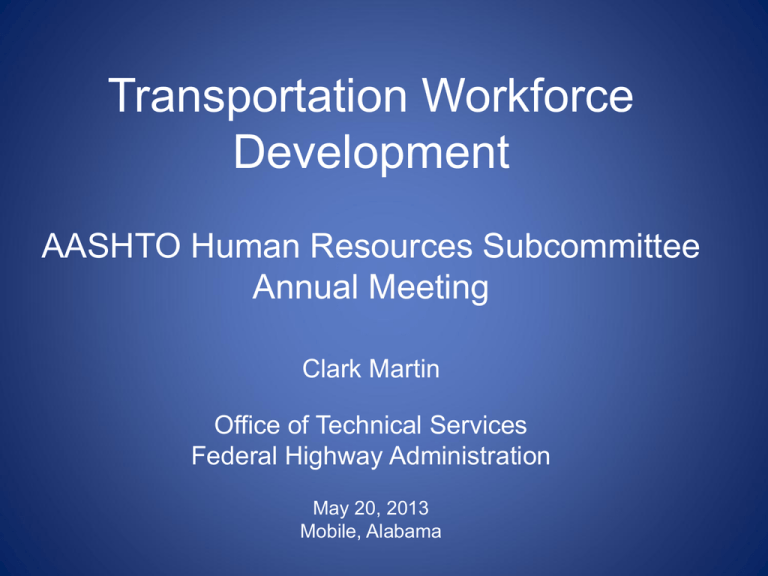
Transportation Workforce Development AASHTO Human Resources Subcommittee Annual Meeting Clark Martin Office of Technical Services Federal Highway Administration May 20, 2013 Mobile, Alabama Workforce Development Continuum COLLEGE K-12 Awareness of Field Build Skills EMPLOYMENT Rehire Employment/ College/ Graduate Technician School Choices Stay in Early Development Major Career Choices Choices USC Section 504(f) Transportation Education Development Program Grant Program to develop transportation curriculum /programs $1.875 million, each year, FY06-09 Grants limited to $300,000 each recipient 100% federal Institutions of higher education K-12 FAST FORWARD; Monthly Electronic Transportation Magazine directed to middle, high school and community college students and teachers - 4th issue out next week. Next issue September www.fastforward.unl.edu Grades 6-12 transportation lesson plans integrated into math, science, social studies classes: www.transportationcareers.org 135 hour Introduction to Transportation course; 9th – 10th grades; developed by Maryland Dept. of Education with US Dept. of Education grant U. of Vermont High School Transportation Systems Academy Additional Summer Transportation Institutes; @ 50 in place Continue Construction Career Day Clearinghouse/Technical Support Tie together into a cohesive National Strategy Community Colleges Transportation Lessons Plans integrated in curriculum Replicate successful curriculum (Truckee Meadow CC engineering technology course) Challenge of Community College support for transportation – local connection Identify transportation jobs that community college curriculum can support (engineering tech/TDL) Best practices for high school, community college, college pathway US Department of Labor curriculum development grants University Possible for FHWA Support University of Oregon Sustainable Cities Initiative: Multi-discipline Teams Support Local Transportation Projects Introduction to Engineering – 12 university consortium; Experiential curriculum to encourage freshman/ sophomores to pursue transportation engineering careers Identify/Promote Best Practices for technical/soft skills curriculum Professional Development Penn State/North Dakota State Certificate Program Expand University of Baltimore/Maryland SHA professional development to other occupations (job classifications >competencies > education/training) U. of Vermont State DOT Transportation Academy Focus on Leadership Skills, Succession Planning Compress Knowledge and Skills to Prepare Next Generation of Transportation Leaders Other Working to extend University of Vermont TEDP; Focus on Career Pathways including State DOT Transportation System Institute Southeast/Midwest Regional Workforce Centers to provide for communication/coordination for transportation across transportation/education/labor RFA to be released in next three weeks Institutions of higher education eligible to submit proposals Hope to expand to at least two other Region Centers in next authorization Virtual Career Network; In place for health industry APTA/Rutgers University developing for transit with FTA grant Possible Transportation VCN through Region Center websites 23 USC Section 504(e) Provides for state core funds to be used for training, education, workforce development-100% federal funding; no state match Since inception in SAFETEA-LU; 41 state have used $71 million Reauthorized in MAP-21 MAP-21 core programs are National Highway Performance Program; Surface Transportation Program; Highway Safety Improvement Program; Congestion Mitigation/Air Quality Bridge, Interstate Maintenance, National Highway System no longer core state programs FHWA revised guidance available in the next two weeks. National Transportation Workforce Summit April 24-26, 2012 - Washington, DC Brought together key private and public sector transportation, and education and labor workforce develop interests Identify issues/barriers to workforce development, successful programs, develop/support national strategy Institutionalize Transportation Workforce Development processes/best practices Secretary of Transportation Ray LaHood, Assistant Secretaries for Transportation, Education and Labor. Eight CEO panel including John Horsley, breakout sessions, discussion, issues/strategies/actions www.cutcworkforce.com CUTC Workforce Workgroup continues to focus on what UTCs can do to address Strategies identified at Summit



